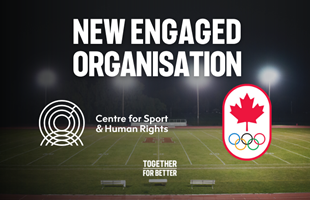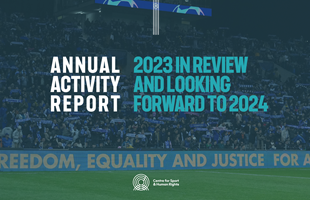Responsible sport: no going back
This article published in The International Sports Law Journal explores the nature and extent of the human rights responsibilities of Sports Governing Bodies (SGBs). The relationships between SGBs and other actors in the sports ecosystem have increasingly become viewed through a human rights lens, with a particular focus on responsibilities as defined in the United Nations (UN) Guiding Principles on Business and Human Rights (UNGPs), with the UNGPs now acknowledged as the authoritative framework and roadmap for SGBs on human rights. Progress in this regard has been mixed. Some SGBs have demonstrated resistance to embracing international human rights norms and standards, arguing that the UNGPs are non-binding and apply only to commercial actors, whereas sports organisations are mostly non-profit organisations with a high degree of autonomy. Others have chosen a different path, becoming pioneers in applying the UNGPs not only to Mega Sporting Events (MSEs), but also to their policies, governance mechanisms and operations. In recent years, two complementary trends have been observed: the UNGPs have become increasingly crystallised in cases and legislation in a number of jurisdictions and States have intervened in sports-related issues on the basis of their duty to protect affected groups where national sports bodies have not complied with international human rights norms and standards. Rather than presenting a challenge to the world of sport, embracing human rights responsibilities should be seen as an opportunity to underpin the value of sport, retain the trust of stakeholders and maintain a social license to operate under the commitment to a responsible autonomy.



